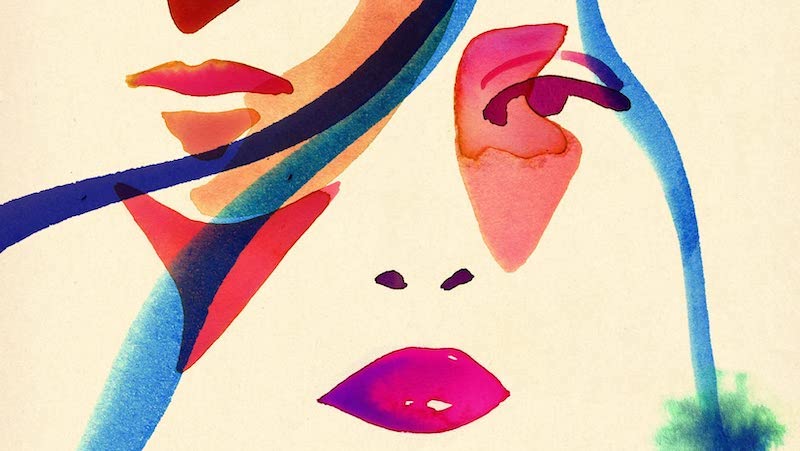
Lorrie Moore’s I Am Homeless If This Is Not My Home, Jenny Erpenbeck’s Kairos, Richard Ford’s Be Mine, Michael Finkel’s The Art Thief, and Jennifer Ackerman’s What An Owl Knows all feature among June’s best reviewed books.
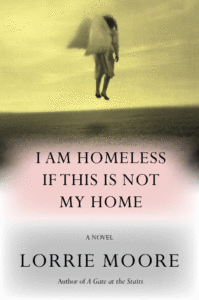
1. I Am Homeless If This Is Not My Home by Lorrie Moore
(Knopf)
16 Rave • 7 Positive • 5 Mixed • 1 Pan
Read an interview with Lorrie Moore here
“Moore excels in…[the] neurotic but intimate conversations that go nowhere, and the scenes in the hospice are viscerally done … Moore shows that grief and ghosts can be written about persuasively, and wittily, without turning a novel into a horror story … A triumph of tone and, ultimately, of the imagination. For Moore, death doesn’t necessarily mark the end of a story.”
–Abhrajyoti Chakraborty (The Guardian)
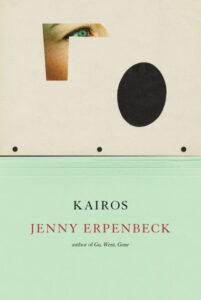
2. Kairos by Jenny Erpenbeck
(New Directions)
14 Rave • 7 Positive
Read an excerpt from Kairos here
“A cathartic leak of a novel, a beautiful bummer, and the floodgates open early … If Kairos were only a tear-jerker, there might not be much more to say about it. But Erpenbeck, a German writer born in 1967 whose work has come sharply to the attention of English-language readers over the past decade, is among the most sophisticated and powerful novelists we have. Clinging to the undercarriage of her sentences, like fugitives, are intimations of Germany’s politics, history and cultural memory … She is writing more closely to her own unconscious … I don’t generally read the books I review twice, but this one I did … Profound and moving.”
–Dwight Garner (The New York Times)
3. August Blue by Deborah Levy
(Farrar, Straus and Giroux)
10 Rave • 4 Positive • 2 Mixed
“Ms. Levy rewards close readers by packing her sardine-can-slim novels with tight connections … August Blue, which builds to a moving climax, is more emotionally accessible than Ms. Levy’s previous novels. But it too encompasses the cerebral and the sentimental, realism and surrealism, love and loss, the drive to create art—and the ambiguities of human relations.”
–Heller McAlpin (The Wall Street Journal)
4. Be Mine by Richard Ford
(Ecco)
9 Rave • 3 Positive • 1 Mixed • 2 Pan
“Ford hides himself away and lets the inescapably, unstoppably logocentric Frank tell his tale in his own distinctive, discursive voice, a roving ‘I’ addicted to description and speculation. Every Bascombe book is full-on Frank … If you’re up for a dazzling, acutely painful 342-page monologue from a 74-year-old whose favorite shoe is a Weejun, who likes to rhapsodize about suburbia, and who is right now preoccupied with an unspooling tragedy on a road trip through a tranche of Trump country, Be Mine is just the ticket … The astonishing core of Be Mine is the barbed, tender, despairing bond between father and son … Every sentence is considered, yet many look like they’re about to fall apart in their devious careening.”
–Adam Begley (The Atlantic)
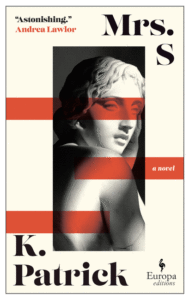
5. Mrs. S by K Patrick
(Europa Editions)
6 Rave • 3 Positive • 1 Mixed
Read an excerpt from Mrs. S here
“In Mrs. S, the debut novel by the Glasgow author K. Patrick, bodies exist as a site of ongoing construction. Perhaps this is because our protagonist does not know how she feels about the particular body that she inhabits. And the questions that crop up because of that unknowing make for an entirely captivating read … In due course the novel offers a steamy love story, and Patrick proves to be a deft hand at the erotic … I could wax on about the sensuality of Patrick’s narrative, how sometimes loneliness means gazing deeply into the well of your own self, wondering at the stranger who’s reflected back. But I’d rather leave it with the unanswered question. Change comes for us all, and that’s a beautiful, awesome thing. Save the knowledge for later.”
–Kristen Arnett (The New York Times Book Review)
**
1. The Art Thief: A True Story of Love, Crime, and a Dangerous Obsession by Michael Finkel
(Knopf)
8 Rave • 2 Positive • 1 Pan
Read an essay by Michael Finkel here
“Thrilling … This ultra-lucrative, odds-defying crime streak is wonderfully narrated by Finkel, in a tale whose trajectory is less rise and fall than crazy and crazier. Only briefly does his book lag, in its discussions of the alleged science of our attraction to art … Over all, The Art Thief, like its title character, has confidence, élan, and a great sense of timing. It is propelled by suspense and surprises, and it is neither ashamed of nor stingy with the fundamental emotional payoffs of the heist—the disbelieving No way!, the unabashed glee at the deft accomplishment of the seemingly impossible and definitely illegal. Nor does it hesitate, when the time comes, to bring down the boom.”
–Kathryn Schultz (The New Yorker)
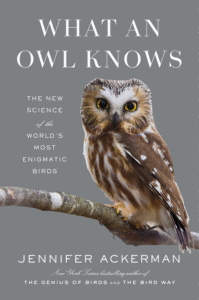
2. What An Owl Knows: The New Science of the World’s Most Enigmatic Birds by Jennifer Ackerman
(Penguin Press)
8 Rave
Read an excerpt from What An Owl Knows here
“Ackerman is a warm and companionable guide, so enthusiastic about her subject that I suspect even the avian-indifferent will be charmed by her encounters with owls and the dedicated people who study them. Each species seems like a marvel, but certain owls are so special that her book is peppered with superlatives … The photos in Ackerman’s book are fascinating”
–Jennifer Szalai (The New York Times)
=3. A Thread of Violence: A Story of Truth, Invention, and Murder by Mark O’Connell
(Doubleday)
6 Rave • 2 Positive
Read an excerpt from A Thread of Violence here
“Doubt is the dominant key of Mark O’Connell’s exhilarating A Thread of Violence, a probing portrait of one of the most notorious murderers in recent Irish history … O’Connell periodically interrupts his narration with what he calls ‘meta ruminations’ on such matters as truth and doubt. Eschewing the novelistic conventions of so many true-crime accounts, with their shifting points of view and you-were-there immediacy, he adopts instead the skeptical tone of the essayist … As O’Connell concedes in this brilliant and rigorously honest book, Macarthur ‘had failed me as a character. He had denied me the satisfaction of an ending.'”
–Christopher Benfey (The New York Times Book Review)
=3. To Name the Bigger Lie: A Memoir in Two Stories by Sarah Viren
(Scribner)
6 Rave • 2 Positive
Read a craft essay by Sarah Viren here
“Strange and wonderful … The book is preoccupied with twinned phenomena and dual perspectives. It’s a book for our times, when singular truths seem less certain with each passing day … She seems to be saying that creating art is as much meaning as we can hope for in this world. This might sound self-congratulatory, but it struck me as the ideal ending for this ouroboros of a book.”
–Claire Dederer (The New York Times Book Review)
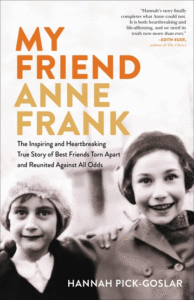
5. My Friend Anne Frank: The Inspiring and Heartbreaking True Story of Best Friends Torn Apart and Reunited Against All Odds by Hannah Pick-Goslar
(Little, Brown Spark)
5 Rave • 2 Positive
“Beyond this account of their tragically curtailed friendship and their brief, painful reunion, My Friend Anne Frank, written with Dina Kraft, is as much Hannah’s story as it is Anne Frank’s … Pick-Goslar certainly has a story, and she tells it here with great clarity and conviction. In many ways her experience parallels Anne Frank’s … Much of Pick-Goslar’s account may seem familiar to those who have read widely about Frank. So, I suppose the question arises: Do we really need another Anne Frank book? To which I would offer an unequivocal yes … She has a story, a piece of history, and she tells it straightforwardly and well. She describes, touchingly, and as very people few could, what it was like to read Anne’s diary after having known its author.”
–Francine Prose (The Washington Post)

